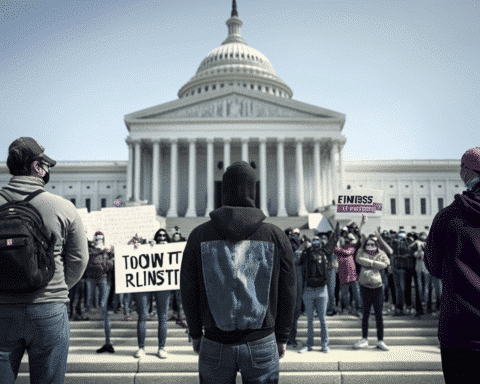President Joe Biden signed a law ending public health emergency declarations related to covid-19, initially declared by Donald Trump in 2020.
US President Joe Biden signed a law terminating the health emergency declared due to covid-19, as reported by the White House. This action gives the green light to the regulation, which the Republican-controlled House of Representatives had approved on January 31.
This new legislation concludes the current national emergency and public health emergency declarations initially instituted by former President Donald Trump in 2020.
These emergency measures enabled the federal government to allocate funds to aid local governments in combatting the pandemic, among other actions.
Initially, the Biden Administration opposed the bill, arguing that if approved, it would create “enormous chaos and uncertainty in the United States healthcare system.”
In late January, the White House announced its intention to cease recognizing covid-19 as a national emergency by May 11, to avert such detrimental consequences.
One of these consequences was the abrupt termination of Title 42, a controversial health regulation that allowed for the rapid expulsion of migrants at the border, citing the pandemic as justification.
The Democratic governor has confirmed May 11 as the planned date to lift the immigration restriction.
As a result of ending the national health emergency, state and local governments will now have to rely on their resources and funding to continue addressing any lingering effects of the pandemic. This may lead to disparities in the availability of resources and support for ongoing covid-19 related issues in different regions of the country.
Despite ending the national health emergency, the Biden administration has emphasized the importance of ongoing vigilance, urging Americans to remain cautious and follow public health guidelines, such as getting vaccinated and wearing masks when necessary.
Additionally, the government has stated that it will continue to monitor the situation and is prepared to take action if there is a resurgence of cases or the emergence of new variants. Efforts will also continue globally to support vaccination campaigns in other countries as the administration recognizes the interconnectedness of public health worldwide.
Although lifting the immigration restriction under Title 42 is planned for May 11, there is still uncertainty about how this will affect the situation at the border. Some experts have expressed concerns that ending the controversial measure may increase migration attempts, potentially overwhelming the already strained immigration system.
Overall, the decision to end the covid-19 health emergency reflects the progress made in the United States in combating the pandemic, but it also highlights the ongoing challenges and the need for continued vigilance and cooperation at all levels of government and society.




